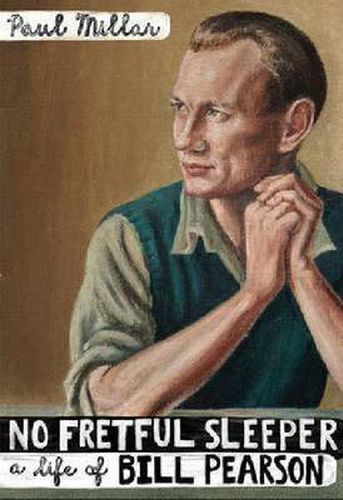Readings Newsletter
Become a Readings Member to make your shopping experience even easier.
Sign in or sign up for free!
You’re not far away from qualifying for FREE standard shipping within Australia
You’ve qualified for FREE standard shipping within Australia
The cart is loading…






‘There is no place in normal New Zealand society for the man who is different’, wrote William Harrison (Bill) Pearson. One of New Zealand’s most distinguished fiction writers and sharpest critics, Pearson’s life was also fraught with contradiction and secrecy, largely because of his homosexuality. Born in a small town in 1922, he grew up in a society dominated by a rugged ideal of manhood; not easy for a sensitive boy who preferred intellectual pursuits to sports. He went to university and teachers’ training college, then taught at the tiny Black-ball School, a period from which he drew the material for his celebrated novel, Coal Flat. After serving in WW2, he received his PhD from the University of London - where distance gave him a clear critical perspective on this country of ‘fretful sleepers’ - then returned to New Zealand as a scholar, editor and lecturer. Pearson’s life is emblematic of vital elements, and conflicts, in 20th-century New Zealand society: intellectual culture, left-wing politics and the growing acceptance of homosexual identity and Maori and Pacific Island culture. Drawing on Pearson’s own unpublished writing and extensive research, Millar has written a fascinating biography of a man sentenced by his times to a life of unwilling concealment - a man who yet became a courageous non-conformist, fully awake to the vulnerability of his society’s freedoms.
$9.00 standard shipping within Australia
FREE standard shipping within Australia for orders over $100.00
Express & International shipping calculated at checkout
‘There is no place in normal New Zealand society for the man who is different’, wrote William Harrison (Bill) Pearson. One of New Zealand’s most distinguished fiction writers and sharpest critics, Pearson’s life was also fraught with contradiction and secrecy, largely because of his homosexuality. Born in a small town in 1922, he grew up in a society dominated by a rugged ideal of manhood; not easy for a sensitive boy who preferred intellectual pursuits to sports. He went to university and teachers’ training college, then taught at the tiny Black-ball School, a period from which he drew the material for his celebrated novel, Coal Flat. After serving in WW2, he received his PhD from the University of London - where distance gave him a clear critical perspective on this country of ‘fretful sleepers’ - then returned to New Zealand as a scholar, editor and lecturer. Pearson’s life is emblematic of vital elements, and conflicts, in 20th-century New Zealand society: intellectual culture, left-wing politics and the growing acceptance of homosexual identity and Maori and Pacific Island culture. Drawing on Pearson’s own unpublished writing and extensive research, Millar has written a fascinating biography of a man sentenced by his times to a life of unwilling concealment - a man who yet became a courageous non-conformist, fully awake to the vulnerability of his society’s freedoms.